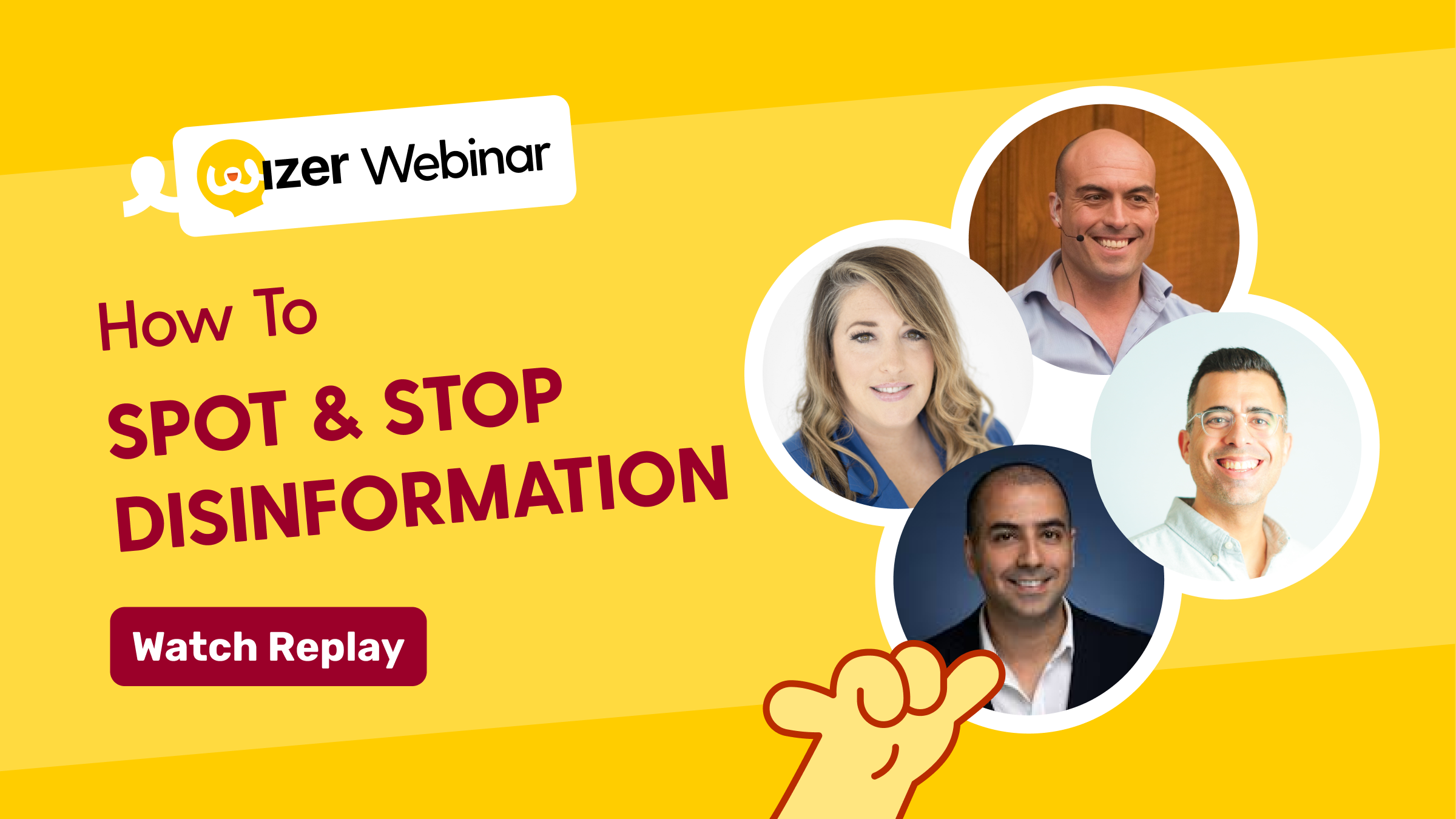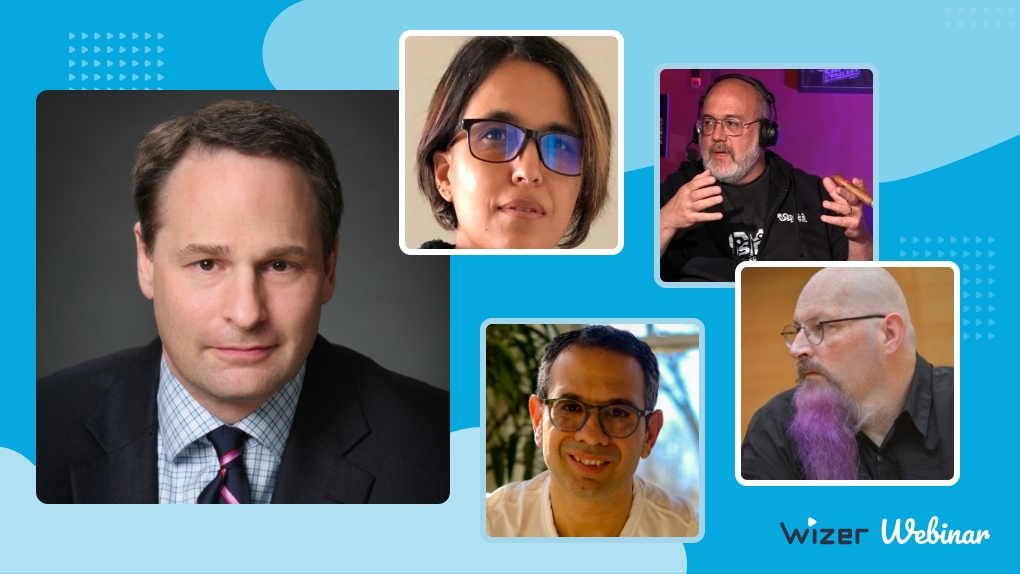You Can't Handle the Truth!
You Can’t Handle the Truth! Or Can You? A truly eye opening account from several experts discussing the MISinformation Super-Highway and how we, the people, can do our part to be informed and find the truth. (Yes, our panelists and moderator have been fact checked!)
The world has changed...Gone are the days where you gathered as a family to watch the local evening news and went about your evening. Sure, bad stuff happened in the world...You just didn’t hear about it as much.
We’ve come a long way from local radio, television, and newspapers. Fast forward...Technology has evolved (and is still evolving) and we are met with even more information than our brains can handle. It’s no longer solely about delivering the news, it’s about a market of millions of media outlets from everywhere all competing for your attention.
Why does it feel like these times are getting more stressful? Why do we need this conversation?
What seems to have been forgotten about is the human element and it is complex at that.
Before social media, you read a story (in its entirety), and to fact check it, you read an opposing story, and maybe one in the middle to form your own opinion. Kids were actually taught this in school. Remember citing resources for your papers?
Content Junkies
We are content junkies, signing up for more and more stuff, and we don’t want to miss anything. People who create content (me included) push things out and market them to get readership. It gets shady when content creators sensationalize and push out information without all of the facts to the world just to “beat” their competitors.
While we’re searching for memes to be the funniest person on our newsfeed or watching funny videos, other stories pop up in between in hopes of grabbing our attention. They are not randomly put there.
We are all targets.
Our profile data is gathered and targeted content is delivered. You’ve all seen it! How many times have you searched for a product and then...BOOM...there it is just waiting for you to buy it next time you log into your social media account!
This is the SAME for news stories. You see a juicy headline and click, they’ve already made their money. How many times have you actually read the entire article? (scanning it doesn’t count) And did you check on an opposing article or one that offered a viewpoint in the middle like you used to? Probably not. We don’t have time for that. And why? Because we have more fun stuff and other news to get to!
MISinformation spreads like wildfire.
It is one thing to consume information, another to amplify it. The problem is that humans take action before they’ve had a chance to process and fact check.
Posting on social media is the new word of mouth and as we all know, the fastest way to spread information. That includes MISinformation. Fact check before your share. When you like, share, retweet a headline, or post without fact checking, you are contributing to spreading false information. YOU are the product.
Step back and realign for authentic news.
Understand that your experience on the internet is tailored to you and is your version of reality. Keep that in the back of your mind when you are presented with content. It is designed for you to engage. Ask yourself what the source is. You are your own newspaper editor now and it is the only way you will be able to “see what you cannot see.”
Some could argue that paying for news validates it. Nothing is free but everything online is expected to be free.
Before you read the news...
- Look, we know you are busy and can't possibly fact check EVERYTHING you read. That's almost impossible.
- You can't judge a book by its cover. Don't just go for snazzy headlines. Read an article in its entirety.
- Exercise Skepticism
- Look in the mirror -Know yourself. What do you care not care about? What are your triggers? That is how you find your biases. Everyone has a level of bias based on experiences. There is also some level of bias with a person that wrote an article. If you read something on the left, research the center and right. Validate.
- Not everything is black and white - spend some time in the gray area to find the truth.
- Treat the internet like a used car salesman. It has an agenda.
Before YOU share...
- If you share, fact check. It is the responsible thing to do so that you don't amplify fake news.
- As we look at the lens, we have to look at it a different way. A lot of us are not in the same room and cannot read facial expressions, movements, etc. tones of voices.
- It is your responsibility that you are having a conversation that is balanced. Be well informed.
Before YOU take action...
- You MUST fact check!
- If your blood is boiling, slow down. Process the information before sharing it.
- Flatten the Curve - If you see something, say something. We're talking about spam, robocalls, fake profiles, etc. Report these things to the FTC at ReportFraud.ftc.gov
Explore these wonderful suggestions and resources and use your own judgement.
- Avoid resources with tons of ads.
- Purchase a news subscription from a reliable source. (Make sure to vet it first.)
- Look at sites that give multiple viewpoints or even fact check for you.
- Check out the Pros and Cons of relevant topics and issues. https://www.procon.org
- Simultaneously search Conservative and Liberal news orgs https://splitsearch.netlify.app/
- Fact check different media outlets https://mediabiasfactcheck.com/
- Ad Fontes Media Bias Chart https://library.fvtc.edu/News/BiasCheck
Internet Regulation - Could this be a thing?
It could. Look at it as a virtual identification card similar to your drivers license. if we regulated one online profile for all, things could change for the better. We would be responsible for our interactions online as we are in the real world. Of course, there is a fine line and many people wouldn’t go for this type of regulation. Then, there would be people that go elsewhere to try and troll sites. Still, it would benefit the majority of people.
It’s not all bad.
Don’t get us wrong, there are lots of great things on the internet too and it has bridged a lot of gaps and opened peoples’ eyes to parts of the world they may never get to experience otherwise. We just need to be accountable…
Moderated by
-
Wizer’s hacker, Chris Roberts!
Panelists:
-
Sean Martin - At the Intersection of Technology, CyberSecurity & Society™ | Broadcaster, Storyteller, Analyst, Writer, Professor
-
Marco Ciappelli - Co-Founder | ITSPMagazine
-
William (Tony) Cole - CTO Attivo Networks | NASA Advisory Council | (ISC)² Board of Directors (BOD) | Bayshore Networks Advisory Board | Member NACD
-
Allen O'Rourke - Attorney at Robinson Bradshaw

Gabriel Friedlander
Gabriel Friedlander is the Founder & CEO of Wizer, whose mission is to make basic security awareness a basic life skill for everyone. Wizer has been rapidly growing since being founded in 2019, and now serves 20K+ organizations across 50 countries. Before founding Wizer, Gabriel was the co-founder of ObserveIT (acquired by Proofpoint). With over a decade of experience studying human behavior, he is a prolific content creator on social media, focusing on online safety to elevate public understanding of digital risks. His engaging 1-minute videos have captured the attention of millions worldwide, going viral for their impactful messages.

